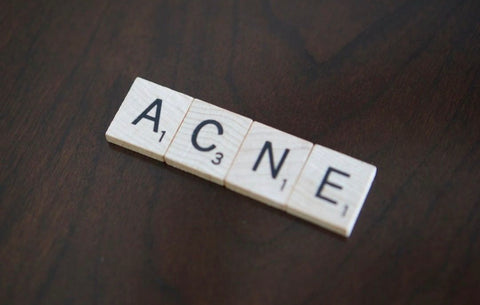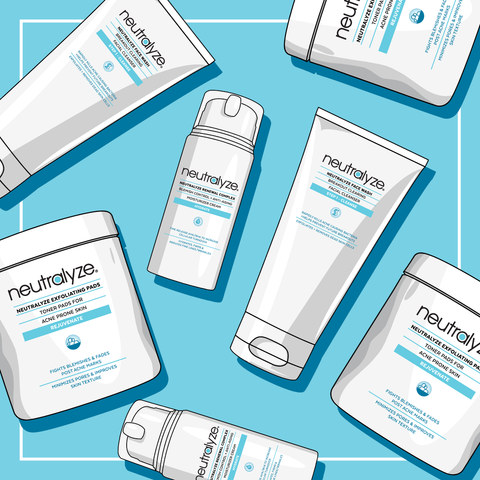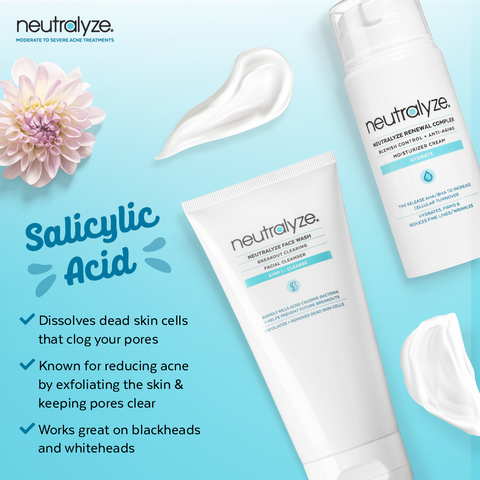The Best Acne Treatment for Boys: What You Need to Know About Managing Teenage Acne

Acne is one of the most common skin conditions among teenagers, affecting up to 85% of adolescents and young adults to some degree. While it can affect people of all ages, it’s mostly prevalent among 12- to 24-year-old individuals. Acne in teenagers is commonly characterized by clogged pores, pimples, and hard, sometimes painful, bumps that appear on different parts of the body.
The adolescent years present a unique set of challenges for every teenager. It’s a period marked by transitions, and acne can make this time more stressful for them. It can negatively impact a teenager’s quality of life, affecting not only their physical appearance, but also their self-esteem, emotional and mental well-being, and even their relationships with others.
The bottom line is, acne can make the teenage years even more difficult. Fortunately, acne can be treated.
Teenage Acne: Causes and Effects
According to a review by Heng and Chew, acne typically appears during the onset of puberty, due to the increase in sebum production. The study also revealed that severe acne is more prevalent among older teenagers compared to younger individuals or preteens. This increase in sebum production creates a more conducive environment for the growth of Propionibacterium acnes, a bacterium species that causes the development of the inflammatory lesions commonly associated with severe acne.
The exact cause of acne hasn’t been determined yet, but there are a number of factors that contribute to its presence. Two of the most common causes are:
-
Heredity
Genetics plays a big role in whether or not someone gets acne.
A family history of acne can increase the risk of your children eventually developing acne. Genetic factors can significantly affect a person’s skin condition. These factors can determine their skin type and predisposition for acne problems and other skin issues.
-
Hormones
Hormones also play a role in the appearance of acne on teenage skin.
Androgens or sex hormones, which include testosterone, can contribute to acne development. Androgens can be found in both females and males, and they stimulate your sebaceous glands, prompting them to produce oil. Fluctuating hormone levels may cause your body to increase its sebum production, which can contribute to the formation of acne. Excess sebum, along with dead skin cells, can clog pores. Once clogged, your pores become an ideal environment for acne-causing bacteria to thrive.
Other factors that can cause or contribute to acne formation can include:
- Medications
- Age
- Hair care products
The following factors don’t cause acne, but they may worsen it, according to the National Institutes of Health:
- Stress, which can trigger increased sebum production
- Pollution and humidity
- Certain foods
- Inappropriate skincare practices, such as popping pimples or scrubbing too hard
- Excessive friction
Many teenage boys suffer from acne, and the problem can take a toll on their confidence. It may negatively impact their self-worth or even lead to anxiety or depression.
While most cases of acne are mild, it’s important to treat the problem immediately to prevent it from becoming severe. Delayed professional care may cause the acne to worsen, which, would have more debilitating effects on a teen’s emotional, physical, and mental well-being.
Challenges in Treating Teenage Acne
There’s no one way to treat acne. Everyone responds to treatments differently. We’re sharing some of the best acne treatment for teen boys, following a more holistic approach.
Acne-related myths
One of the best ways to treat acne in teenage boys is to dispel the myths that surround it. Several popular acne-related myths include:
-
Acne is caused by bad diets.
Having an unhealthy diet doesn’t necessarily cause acne. However, food may play a role in exacerbating it. They may trigger inflammation, which can contribute to the formation of acne. Moreover, having a healthier diet can help prevent or combat acne.
To achieve healthier skin, you need to make positive changes to your diet. Try avoiding foods that can trigger an insulin spike, which prompts the body to produce more oil. Opt for healthier alternatives instead. Choose food that’s rich in healthy fats (Omega-3 fatty acids), such as salmon, sardines, chia seeds, and walnuts. Fruits and vegetables are also great sources of antioxidants, which have anti-inflammatory properties and can combat oxidative stress.
If you’re able to, avoid types of food with a high glycemic index, such as white bread, highly processed food products, and sugar. Moreover, avoid a diet that’s high in saturated and trans fats, as these can stimulate hormones to produce more oil.
-
Acne is caused by dirt.
While dirt can contribute to acne, it’s not its root cause. When cleaning your face, avoid scrubbing too roughly. Also, don’t use harsh or abrasive cleansers, as these can exacerbate your acne.
-
Popping your pimples would make them go away faster.
Popping your pimples won’t make them go away. Popping and picking them can even cause your acne to worsen.
-
Acne will disappear with age.
Acne can affect anyone, regardless of age. While some cases do disappear with treatment or proper skin care, some can persist and last until adulthood.
-
Acne will clear up immediately with treatment
It can be frustrating to see that you still have acne, even after weeks of treatment. Understand that treatment to take full effect, it would need time. You should consistently and patiently abide by your dermatologist’s prescribed skincare treatment, and don’t forget to make follow up visits, as some changes or adjustments to your treatment may be necessary.
Additionally, it’s important to note that an acne treatment product won’t necessarily be effective just because it’s expensive. Remember that what worked for your friend might not work for you. To ensure that you get the best acne treatment for teen boys, it’s best to consult a medical professional.
Delaying treatment
Not addressing acne immediately can cause it to become a more severe. The best acne treatment for teen boys can only be attained with the aid of a medical professional. Note that you don’t necessarily have to go to a dermatologist straight away. It’s perfectly fine for you to seek help from your family doctor first. Many doctors are able to provide treatment for mild acne. If a specialist is needed, your doctor may refer you to a dermatologist.
Everyone’s skin is different and, when it comes to teen acne, there’s no one-size-fits-all approach to treating it. While you can use over-the-counter (OTC) acne treatment products, you may require a prescription treatment, especially if you’re still suffering from severe acne. Compared to OTC products, prescription medications are often stronger and work faster.
Once you’ve started your acne treatment, rigorously follow it. Read the product labels or ask your doctor about the proper use of the products.
Acne is a real problem that poses challenges for teens all over the country. While it may seem like it’s impossible to deal with, talking to a trusted medical professional can help you find a solution and pave the way for clearer, healthier skin.


